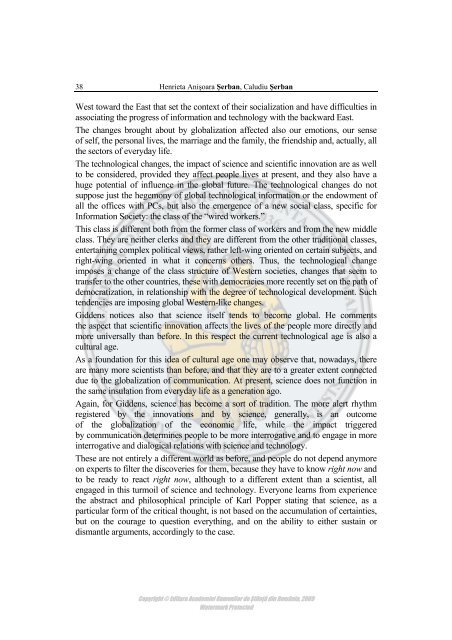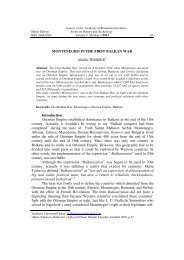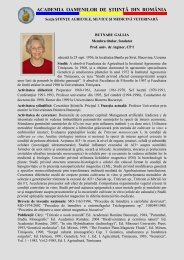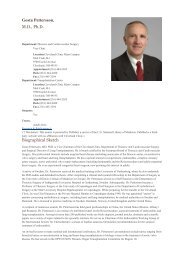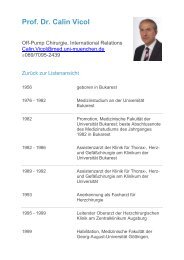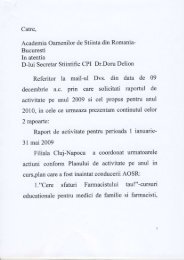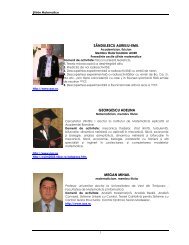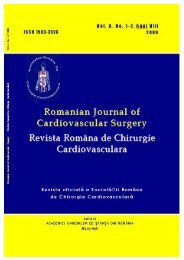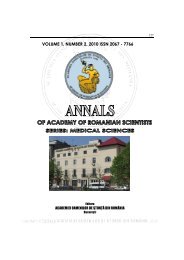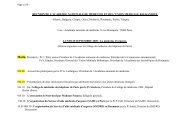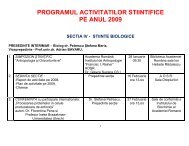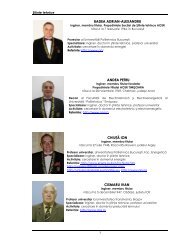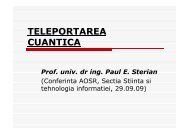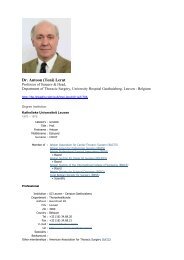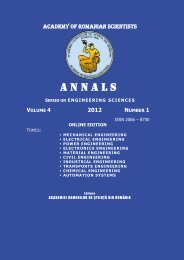PROCEEDINGS - Academia Oamenilor de Stiinta din Romania
PROCEEDINGS - Academia Oamenilor de Stiinta din Romania
PROCEEDINGS - Academia Oamenilor de Stiinta din Romania
You also want an ePaper? Increase the reach of your titles
YUMPU automatically turns print PDFs into web optimized ePapers that Google loves.
38 Henrieta Anişoara Şerban, Caludiu Şerban<br />
West toward the East that set the context of their socialization and have difficulties in<br />
associating the progress of information and technology with the backward East.<br />
The changes brought about by globalization affected also our emotions, our sense<br />
of self, the personal lives, the marriage and the family, the friendship and, actually, all<br />
the sectors of everyday life.<br />
The technological changes, the impact of science and scientific innovation are as well<br />
to be consi<strong>de</strong>red, provi<strong>de</strong>d they affect people lives at present, and they also have a<br />
huge potential of influence in the global future. The technological changes do not<br />
suppose just the hegemony of global technological information or the endowment of<br />
all the offices with PCs, but also the emergence of a new social class, specific for<br />
Information Society: the class of the “wired workers.”<br />
This class is different both from the former class of workers and from the new middle<br />
class. They are neither clerks and they are different from the other traditional classes,<br />
entertaining complex political views, rather left-wing oriented on certain subjects, and<br />
right-wing oriented in what it concerns others. Thus, the technological change<br />
imposes a change of the class structure of Western societies, changes that seem to<br />
transfer to the other countries, these with <strong>de</strong>mocracies more recently set on the path of<br />
<strong>de</strong>mocratization, in relationship with the <strong>de</strong>gree of technological <strong>de</strong>velopment. Such<br />
ten<strong>de</strong>ncies are imposing global Western-like changes.<br />
Gid<strong>de</strong>ns notices also that science itself tends to become global. He comments<br />
the aspect that scientific innovation affects the lives of the people more directly and<br />
more universally than before. In this respect the current technological age is also a<br />
cultural age.<br />
As a foundation for this i<strong>de</strong>a of cultural age one may observe that, nowadays, there<br />
are many more scientists than before, and that they are to a greater extent connected<br />
due to the globalization of communication. At present, science does not function in<br />
the same insulation from everyday life as a generation ago.<br />
Again, for Gid<strong>de</strong>ns, science has become a sort of tradition. The more alert rhythm<br />
registered by the innovations and by science, generally, is an outcome<br />
of the globalization of the economic life, while the impact triggered<br />
by communication <strong>de</strong>termines people to be more interrogative and to engage in more<br />
interrogative and dialogical relations with science and technology.<br />
These are not entirely a different world as before, and people do not <strong>de</strong>pend anymore<br />
on experts to filter the discoveries for them, because they have to know right now and<br />
to be ready to react right now, although to a different extent than a scientist, all<br />
engaged in this turmoil of science and technology. Everyone learns from experience<br />
the abstract and philosophical principle of Karl Popper stating that science, as a<br />
particular form of the critical thought, is not based on the accumulation of certainties,<br />
but on the courage to question everything, and on the ability to either sustain or<br />
dismantle arguments, accor<strong>din</strong>gly to the case.<br />
Copyright © Editura Aca<strong>de</strong>miei <strong>Oamenilor</strong> <strong>de</strong> Știință <strong>din</strong> România, 2009<br />
Watermark Protected


